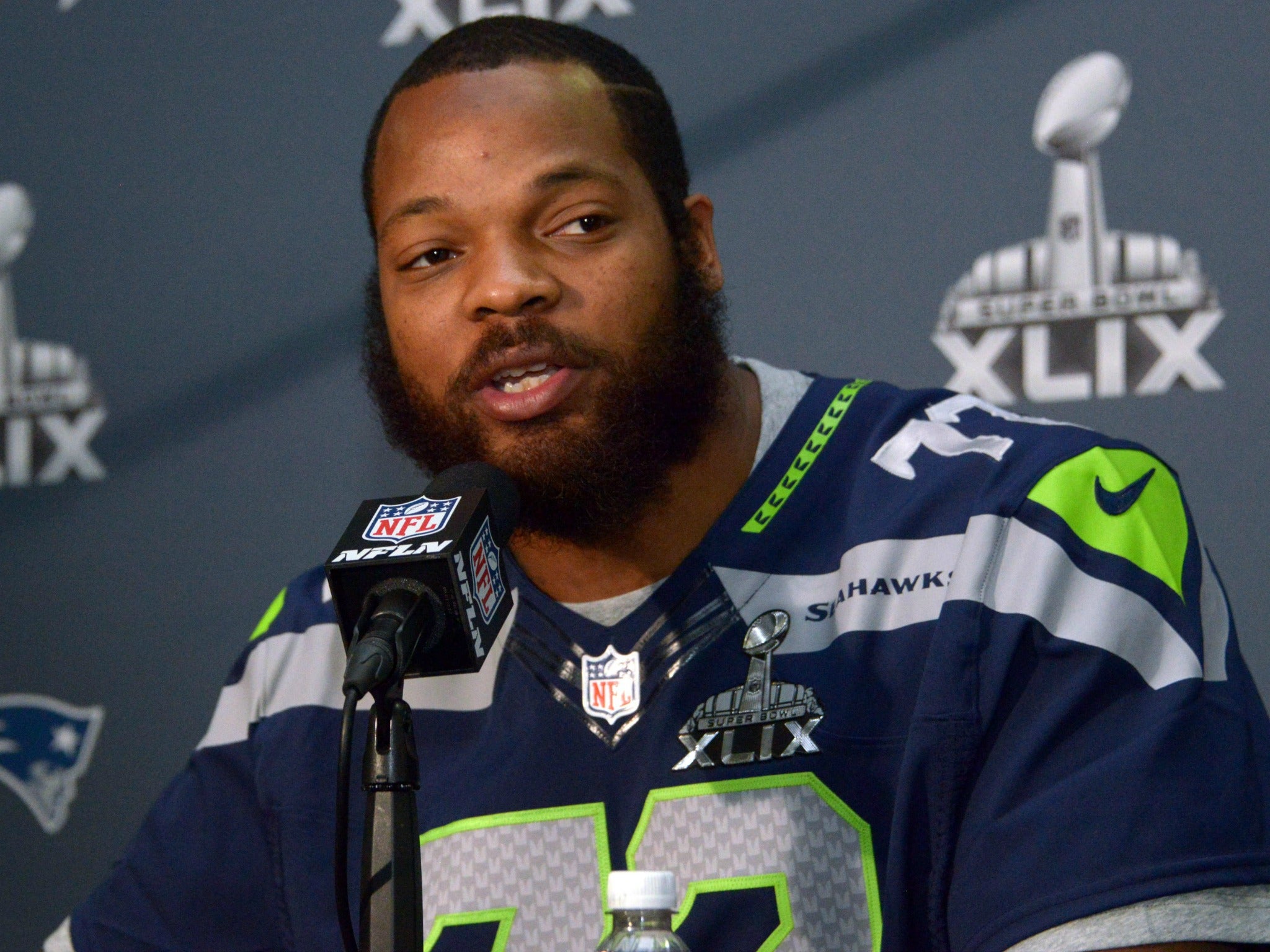NFL player Michael Bennett says Las Vegas police threatened to kill him because he's black
'Equality doesn’t live in this country,' he writes, but police see 'no evidence that race played a role'

Your support helps us to tell the story
From reproductive rights to climate change to Big Tech, The Independent is on the ground when the story is developing. Whether it's investigating the financials of Elon Musk's pro-Trump PAC or producing our latest documentary, 'The A Word', which shines a light on the American women fighting for reproductive rights, we know how important it is to parse out the facts from the messaging.
At such a critical moment in US history, we need reporters on the ground. Your donation allows us to keep sending journalists to speak to both sides of the story.
The Independent is trusted by Americans across the entire political spectrum. And unlike many other quality news outlets, we choose not to lock Americans out of our reporting and analysis with paywalls. We believe quality journalism should be available to everyone, paid for by those who can afford it.
Your support makes all the difference.A star American football player has accused the Las Vegas police of using excessive force, pointing their firearms at him and threatening to kill him because he is African-American.
In a Twitter post, Michael Bennett wrote that he had left a heavily publicised fight between Conor McGregor and Floyd Mayweather when he heard gunshots and began to run away.
After Las Vegas police officers stopped him, Mr Bennett wrote, one officer pointed a gun at him and warned that he would “blow my…head off” if he moved.
Another officer “forcefully jammed his knee into my back making it difficult for me to breathe”, the Seattle Seahawks player wrote, and then “cinched the handcuffs on my wrist so tight that my fingers went numb”.
The allegation, which has been shared well over 100,000 times, is likely to inflame an already-blazing debate over police officers using force on African-American suspects.
A mounting collection of video footage showing officers killing suspects helped birth the Black Lives Matter movement and has spurred calls for measures, like body cameras, to promote police accountability.
Athletes playing America’s most popular sport have not stayed on the sidelines, with Mr Bennett joining other African-American players in kneeling during pre-game broadcasts of the national anthem as an act of protest.
Mr Bennett contended that he was subjected to harsh treatment “for doing nothing more than simply being a black man in the wrong place at the wrong time”, adding that officers released him once they realised he was a professional athlete and not “a thug, common criminal or ordinary black man”.
“Equality doesn’t live in this country”, Mr Bennett wrote.
In a press conference, Las Vegas Metropolitan Police Department Undersheriff Kevin C McMahill rejected that notion, saying an investigation was underway but stating that “I see no evidence that race played a role in this incident”.
According to Mr McMahill, officers encountered Mr Bennett after entering a casino to respond to an early morning report of an active shooter. After confronting a scene of chaos that included large groups of people running for cover, Mr McMahill said, officers saw Mr Bennett, who was “crouched down behind a gaming machine”, run out of the casino.
“They believed Bennett may have been involved in the shooting and they gave chase,” Mr McMahill said, adding that both officers drew their handguns while detaining Mr Bennett, who was unarmed.
The investigation will include combing through at least 126 videos from body cameras, Mr McMahill said, asking anyone with additional footage to come forward.
“I believe this case will become completely clear as all available video is viewed," Mr McMahill said.